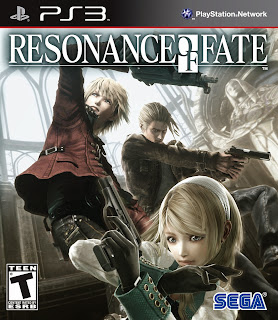The White Queen is a femme-tastic story of intrigue and fighting during the 15th-century War of the Roses in England. It is the first book in the
Cousins' War trilogy by Philippa Gregory, author of
The Other Boleyn Girl. The main character is the newly widowed Lady Elizabeth Grey, who seeks her lands restored to secure the fortune of her two young sons. She goes to plead her case to Edward, the York upstart fighting for the throne. As both Elizabeth and Edward are young, blond, and have super sexy faces, they immediately share a mutual attraction that further complicates the already protracted battle for rulership in England.
The novel begins with steamy romance novel-esque hidden glances and manipulations and gradually becomes a dark exploration of the depths of ambition at the heights of power. Once Elizabeth becomes Edward's queen, over the objections of the king's closest and most powerful ally, she and her mother place their relatives in high positions to enrich the family and solidify their hold on the throne. Edward and Elizabeth have frank conversations about the nature of power and the steps necessary to keep it -- in his case, win battles; and in her case, arrange marriages to ensure alliances. Also: pop out many babies, preferably sons, although daughters are pretty great for marrying off, too. Spoiler: she is a baby-making
machine.
But no one can be trusted, as events in the novel show. The promise of the crown brings the death and/or downfall of numerous families, and contenders fail only to be replaced by others. Magic comes into play: Elizabeth and her mother are rumored to be witches, and the author hints at the reality of the claims in a few instances. Gregory begins every significant section of the book with an excerpt from the legend of Melusina, a French water goddess that birthed Elizabeth's line, and who is thought to be the precursor to Ariel, our spunky red-haired Little Mermaid. While an interesting narrative device, the whole point of Melusina seems to be that she can never be fully what her husband wants her to be (i.e. not smell like a fish), whereas Elizabeth appears to move seamlessly into the role of queen and even argues with her daughter about the lengths she would go to just to stay in that position. So it works as a juxtaposition rather than a parallel, and enhances the dramatic tension whenever Elizabeth hears Melusina "singing" when a family member dies.
The theme of love propels the book in the first half and falls to the wayside as more urgent matters take its place. Perhaps that's just as well, because Edward seems a little
too ideal as a husband. He does bed other women, but he's extremely attentive to Elizabeth, and even his top hoor tells her that she's the only one in his heart. Small comfort, but probably the best a woman in the Middle Ages of Christendom can hope for, even a queen.
Supporting protagonist characters are vivid and sympathetic, such as Elizabeth's mother, Jacquetta of the royal line of Burgundy; her pessimistic but dependable brother Anthony; and her eldest daughter, also Elizabeth, shows promise as the heroine of the third novel in the series,
The White Princess. Meanwhile, the antagonists are properly villainous, especially Edward's two brothers George and Richard, whose chances of succeeding him to the throne diminish every time Elizabeth gets pregnant, which is pretty much every other year. Margaret Beaufort, the protagonist in the second book of the trilogy,
The Red Queen, perpetually hovers in the background as she works toward getting her son back from exile. Oh, his name's Henry Tudor, if that means anything. (innocent whistle)
I had only two issues with
The White Queen: one, it got boring for a little bit when Elizabeth has to go into sanctuary again; and two, practically everyone important has the same name. There are multiple Edwards, Richards, Georges, Elizabeths, etc. I got so confused at one point that the idea of drawing out a map of the characters flashed through my head, only to be promptly dismissed by the powers that rule me, laziness and indifference.
Strong character development is probably the novel's greatest strength, especially the description of the myriad relationships that fuel all the drama and warring. It also offers a fresh perspective into the inner workings of royalty and influence, and reminds readers that back then, victories on the battlefield needed to be bolstered by successful machinations at court.
Gregory's redundancy when it comes to certain adjectives is probably the book's most glaring weakness in terms of writing. "...she said bluntly" and "...he said bluntly" get tossed around with wince-inducing regularity. Editors! Get it together! Stop mooning over Edward's dreaminess and use that thesaurus!!!
Speaking of dreamy,
The White Queen can now also be enjoyed without the
exhausting process of reading entire paragraphs. It's a 10-part series available on BBC One, or Starz if you live in the US. Obviously, I will watch it in between marathon sessions of
Babylon 5, because:
(swoon)
Is it wrong that I'm crushing on Richard (far right, in blue)? Oh, Aneurin Barnard, why does your name sound like Aneurysm Barnyard? I don't care. I SHALL BE YOUR QUEEN. (checks history book) Oh, wait, never mind, uh, I'm married, just like you! God would totally disapprove of our union.
But seriously, from the little I've seen of the series, Rebecca Ferguson seems to be holding it all together as strong-willed and scheming Elizabeth, and British TV is
fabulous no matter what. Color me interested.
Now go forth, fellow citizens of Earth, and conquer the day!







